












Fitch Solutions is warning of a resource nationalism risks in Ghana which it describes will persist under President Akufo-Addo.
According to its report on ‘Resource Nationalism in SSA: A Trend Towards Bene ciation Requirements’, it said risks will also be sustained by deteriorating public nances in the country.
It further said that a debt-repayment crisis means that Ghana has been trying to restructure more than $30 billion of domestic and international debt since late-2022. “Default risks could encourage
the government to seek higher tax revenues from the mining sector by raising royalty payments, for instance”, it added.

It continued that President Akufo-Addo has previously stated that scal incentives for mining rms in the country agreed by previous administrations are too generous. The report pointed out that several countries in Sub-Saharan Africa (SSA) are illustrating rising resource nationalism towards their respective mining sectors. This is part of a global trend towards greater government intervention in the mining indus-
try that has been in place since 2020.


In SSA, countries where resource nationalism risks are high and/or rising include The Democratic Republic of the Congo (DRC), Ghana, Guinea, Mali, Namibia and Zimbabwe.
The report further that increased government intervention in the mining sector of these countries will generally aim to extract greater value from the mineral supply chain for local stakeholders including the government (taxes), employees (jobs) and the mining service industry (suppliers and contractors).
The Ghana International Trade Commission (GITC) has made a determination on a petition dated June 30,2022 submitted by Global Roo ng and Construction Limited, a subsidiary of Asadtek Group of Companies, concluding that imported consignment brought into the country constitute dumping since it was not at fair value.
This ruling was contained in a press statement and signed by its Executive Secretary, Frank Agyekum.

The petition was a request for a waiver/exemption of 35.77% Anti-Dumping Duty (ADD)
imposed on consignments of Aluminium coils and circles imported from China. The petitioner contended that the above-mentioned consignments of aluminium coils and circles did not constitute dumping.
The Commission took into consideration the facts contained in the led petition and the 29 page supporting documents. The Commission analysed the issues brought before it, in accordance with the GITC Act 926,2016 and the GITC Anti-Dumping Regulations,2019, L.I.2380 and concluded that the imported consignments were not brought into
Ghana at fair values, hence constituted dumping.
The Commission therefore determined that the request for a waiver/exemption of 35.77% Anti-Dumping Duty on its imported consignments cannot be granted.
GITC was established by an Act of Parliament in September 2016 to regulate Ghana’s international trade architecture in conformity with the rules and regulations of the World Trade System and to provide for related matters.
According to the GITC Act, the objectives of the Commission include ensuring fair competition for persons engaged in domestic production and international trade; overseeing Ghana’s compliance with international trade rules and regulations; protecting the domestic industry or market from the impact of unfair trade practices and ensuring transparency, fairness, e ciency and objectivity in the application of measures a ecting international trade and the use of world trade measures.
The functions of the Commission are but not limited to advise, recommend and
provide analytical support to the Minister of Trade & Industry on: proposals for trade-related legislation; preparation of documentation and negotiating position of Government during international trade negotiations; Ghana’s compliance with its bilateral and multilateral trade treaties and obligations; tari levels for speci c sectors of the economy and on matters a ecting trade and industry after monitoring and reviewing the Country’s international trade.
For Manufacturers, the Commission will determine complaints before it in areas of Safeguard Measures; Subsidization
of Imported Products by Foreign Governments; the Dumping of imported products into our domestic market; tari adjustments and actions which are deemed to a ect fair trade
On the part of Importers and Traders, the Commission will settle disputes arising from classi cation and valuation of imported products between them and the Customs Division of the Ghana Revenue Authority

For Exporters, the Commission will conduct studies and publish reports on the competitiveness of Ghana’s tari structure and its impact on the domestic
industry, market access opportunities and challenges with exports from Ghana.

A Business Integrity Project (BIP) aimed at assisting high growth small medium enterprises (SMEs) to incorporate anti-corruption, compliance, regulatory and integrity activities into their business operations have been launched by the Ghana Enterprises Agency (GEA), with eighty businesses expected to bene t from the rst phase.
The project, christened ‘PEPEYE’ would adopt a multi sectoral approach to ensure an inclusive and responsible clean business environment, especially for women entrepreneurs to be able to navigate issues in terms of gender stereotyping, negotiations, regulatory compliance in their daily business, environment and operations.
Launching the project at a programme to mark the International Women Day celebrations in Accra on Wednesday, Mrs Kosi Yankey-Ayeh, Chief Executive
By Eugene Davistion through the german development corporation (GIZ). The BI initiative was a programme under, through the Alliance for Integrity which metamorphose in us designing a project to support women entrepreneurs, which was then supposed to be embedded within Ghana Enterprises Agency.
agenda, we are committed to, and will continue to support MSMEs, especially in reducing administrative hurdles faced by these businesses,” Mrs Yankey-Ayeh said, adding the Business Integrity Project would be used as a tool to aggressively break stereotypes of gender biases at the workplace and in the community.
O cer of the Ghana Enterprises Agency, said the theme for this year’s celebration, “DigitALL: Innovation and Technology for Gender Equality” aligned with the objectives of the GEA Business Integrity Project.
According to her the six-month pilot project is in partnership with the Alliance for Integrity and the Federal Ministry for Economic Cooperation and Development (GIZ), Germany is meant to strengthen the compliance capacities of SMEs and the supply chain.
It will be phased in Accra and Kumasi before its expansion to other cities. For this rst initiative, 80 SMEs are being targeted and subsequently it will be increased.
“The Business Integrity Project is a partnership between the gea and the federal ministry of economic development corpora-
The idea behind the BII is to provide an opportunity for women SMEs to be able to work in a transparent and a supportive in a corruption free environment so that they can grow their businesses, access better markets and they can support the economy.”she added.
She said the government had put digital economic transformation at the center of the country’s Ghana Beyond Aid agenda, because of the opportunity that digital development has for stimulating jobs, improving productivity, and accelerating inclusive growth.
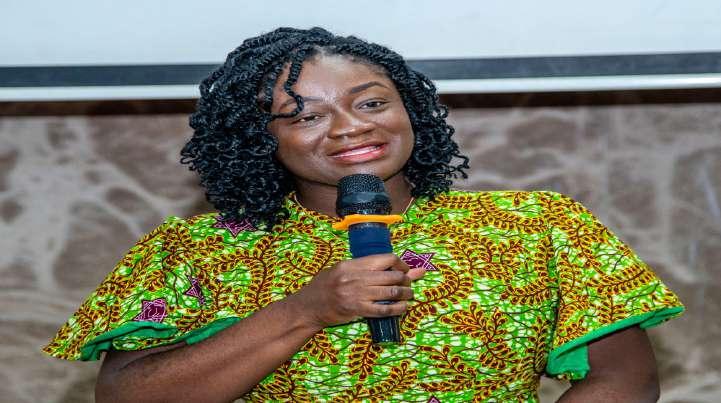
GEA has also placed a premium on the digitalization agenda in its strategic plan and has formed very deliberate partnerships with institutions that possess relevant tools and expertise for digital entrepreneurship and innovation, especially for women-owned/led businesses, she said.
“With our mandate as an Agency, and through our transformational
Mrs. Mary Awelana Addah, Programmes Manager Ghana Integrity Initiative, applauded the tireless e orts and contributions of women across all sectors to nation building.
“We appreciate the daily hassles and obstacles that women face trying to navigate the various barriers, which have been imposed by our social, cultural and religious beliefs. It is women who make the world go round. It is us who make this happen from the home to the workplace.”
Main activities include awareness creation, community engagement dialogue sessions, the use of social media campaigns for people to understand what we are doing and to embrace it, networking events, business integrity workshops as well as mentoring and coaching session.
The GEA will open the application portal on March 9, 2023, for 10 days for interested SMEs.
Speaking at the 2023 Optical Networking and Communication Conference & Exhibition plenary session in San Diego, California, Patricia said, “What we should see in our scope of work is that we’re changing lives... touching lives by the very technology that we develop and the way we use it.”
During her plenary talk titled “Harnessing Digitalisation for E ective Social Change,” Patricia highlighted Super Care, a digital platform that has made a signicant di erence in the lives of people who are speech impaired or deaf. She shared how the Vodafone Ghana team employed sign language experts, trained some customer-facing employees, and introduced customised packages to help this vulnerable group stay connected.
She also talked about Instant Schools, a learning platform that connects thousands of teachers and students in Ghana to e-learning materials from the basic to the secondary level of education.
Over 25,000 learners in Ghana are now connected and can engage with basic curriculum, whether at home or in school.
Another example Patricia highlighted was how technology is improving health outcomes for pregnant women in the region. Over 20% of pregnant women haemorrhage on their way to the hospital because of bad roads and lack of access to transport. In partnership with the governments in countries like Tanzania and Lesotho, women can now contact transport o cers via USSD and get free transport to the hospital.
Highlighting some key issues standing in the way of digital connectivity in Africa, Patricia pointed to poor network coverage, low device penetration, low digital literacy, and a lack of relevant digital content. She emphasised the need for a deeper collaboration between governments and the private sector. “No one agency or company can address
this problem. We must all work together to ensure that we leave no one behind,” she said.
Patricia also stressed that digitalisation e orts must consider the unique challenges that women and girls face, citing examples like Code-Like-A-Girl and Female Engineering Scholarship Scheme Programme, which both challenge gender stereotypes in STEM (Science Technology Engineering and Mathematics).
She concluded by calling on attendees to focus on using technology to make an impact and drive lasting change in society.
The Optical Networking and Communication Conference & Exhibition (OFC) is the largest global conference and exhibition for optical communications and networking professionals. The program is comprehensive — from research to marketplace, from components to systems and networks and from technical sessions to the exhibition. OFC draws attendees from all corners of the globe to meet and greet, teach and learn, make connections, and move the industry forward. OFC 2023 took place between 5th and 9th March in San Diego, California, USA.

UBA Ghana hosted a special International Women’s Day event to celebrate and empower the women and rea rm its mission to champion gender equality across the network of banks.
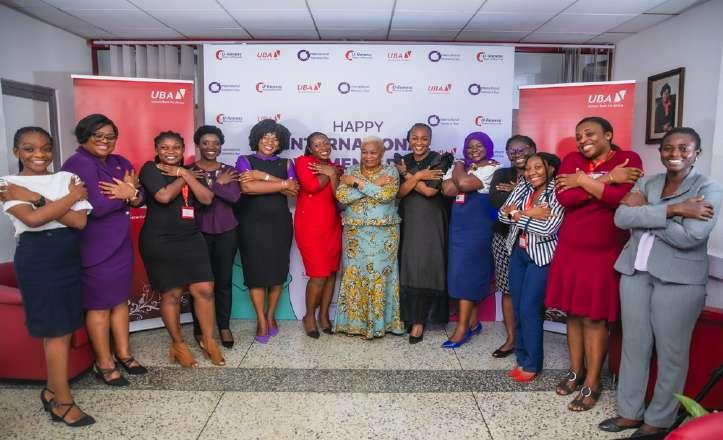
The March 8 event featured two of Ghana’s powerful and renowned speakers: Rev. DR. Joyce Aryee, CEO of Salt & Light Ministries and Dzigbordi Dosoo, Personal Branding Expert & High Performance Certi ed Coach.
The Talk which was also streamed online on all UBA Ghana social media pages was on the topic “Thriving in your career and secrets to honing on your personal brand” and hosted by Head of Personal Banking, Raheemat Boakye. She kicked o the conversation with the speakers to share their views on the impact of women’s day and theme for the year “#EmbraceEquity”.
Rev. Dr. Aryee shared that embracing equity is “Recognis-
ing our equalities and yet our uniqueness by being di erent and for women to take a notch higher” and Dzigbordi buttressed the point saying “It doesn’t matter your background and quali cation, what you have to recognise is that you have that authority to serve. I have always embraced equity and I encourage others to embrace it”.
Dr. Joyce Aryee said, “As a woman professionalism should be a mandate and women should be promoted based on hard work and not mere favours or recommendations. In addition to your profession, one can have a side business to enable women to be economically empowered.”
On her part, Dzigbordi shared some principles of personal branding, saying, ‘When we de ne personal branding, these are the four things you should look up for. What you stand for and your values, secondly, what you are best at, thirdly, the things you master and lastly, putting
authenticity through all of them. “Everyone has a brand, but it takes one to build it up. Allow yourself to be imperfect and learn to be perfect. Grow yourself and remember weakness is part of your brand. Never let anyone speak for you if you can’t back it with your merits.”
The Regional West Africa CEO Chris O kulu, who also doubles as Managing Director at UBA Ghana used the day’s occasion to reinforce a strong personal com-
mitment together with the executive team to be more proactive in creating opportunities for women to continue to lead and thrive in UBA Ghana.
The event was powered by UBA and Ulionesses, the women's group of the bank. It was also supported by the UBA Ruby Account which is a gender specific product designed for discerning women to satisfy business and personal needs.”
Patricia Obo-Nai, CEO of Vodafone Ghana, has emphasised the need for digitalisation to be accessible to all, particularly society’s most vulnerable.
Undoubtedly, SMEs and small-scale industries continue to play a vital role in boosting socio-economic growth and more women are at the forefront of it. In Ghana and the rest of Africa, there is a growing number of women who have become critical drivers in accelerating sustainable socio-economic development.
Over the years, women have been the backbone of the Ghanaian economy; contributing signicantly to economic growth and development. The World Bank estimates that 44 per cent of MSMEs in Ghana are women-owned. In 2020, the Mastercard Index of Women Entrepreneurs (MIWE) ranked Ghana (36.5%) among the world’s three leading economies with most women-owned businesses with Uganda (39.6%) and Botswana (38.5%).
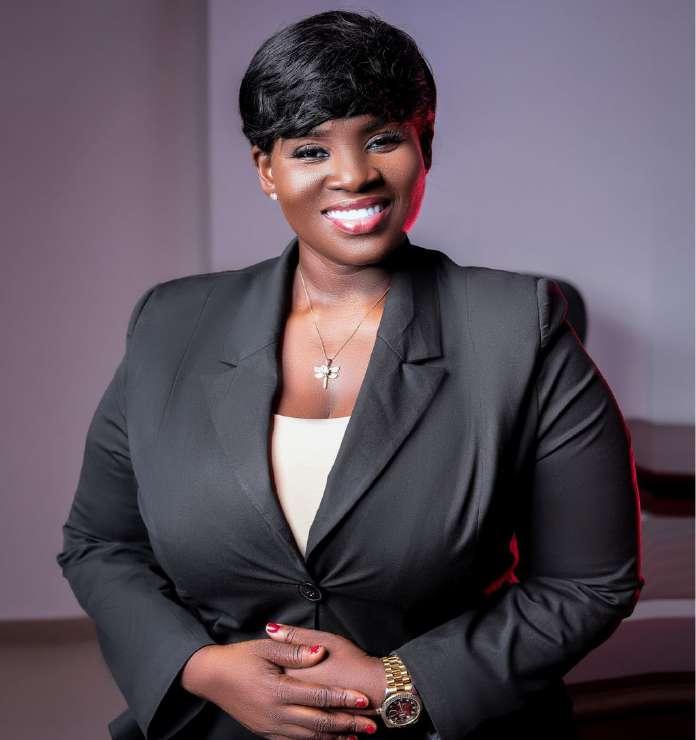
Technology and digitization can go a long way to empower women economically, politically and socially towards the attainment of SDG 5 on gender equality and women empowerment. Over the past few years, digital technologies and innovation have played an integral role in boosting entrepreneurship while creating new and innovative pathways for entrepreneurial empowerment for women. In doing so, we need to equip more women with the
requisite tools and resources to navigate their businesses in a fast-paced digital world. Post COVID, investing in innovative business enterprises are critical to spurring economic recovery. Most importantly, increasing digital literacy among women in Africa will go a long way to harness their digital skills and bring more opportunities for them.
Digital acceleration presents unique opportunities for Ghana’s burgeoning women entrepreneurs helping them scale their businesses, provide unlimited access to information, innovative business ideas, funding and employment opportunities. Through my work, I have had the opportunity to interact and engage several women entrepreneurs whose businesses have been transformed by digitization and innovation. In Ghana, the introduction of value-added banking and nancial services and digital solutions tailored for women has helped many women grow their brands and businesses signi cantly and sustainably. Several women have been able to gain access to funding opportunities which they previously had limited access to.
Immense opportunities continue to emerge in the global digital economy and it is important that women leverage relevant digital
tools and platforms such as e-commerce to help them thrive and grow their micro, small and medium sized entrepreneurial businesses. We cannot underemphasize the essential role technology and
innovation has to play in bridging the digital divide and achieving a gender inclusive society can be realized if we invest in digital literacy interventions, targeted investment programmes among others.
B&P Associates, Lawyers and Consultants (B&P Associates) in collaboration with students from the University of Pennsylvania Carey Law School, USA, has partnered with Women in Law and Development in Africa (WiLDAF) Ghana, as part of the International Women’s Day (IWD) celebrations to intensify education on domestic violence in the Okushiebiade community in the Ga West Municipality of the Greater Accra Region.
The programme with the universal IWD theme: ‘DigitAll: Innovation and Technology for Gender Equality’, #EmbraceEquity seeks to call on domestic violence victims to be outspoken and report perpetrators immediately as they are protected by the Domestic Violence Act 2007 (Act 732).
A 2020 statistical analysis from the Accra Regional o ce of the Domestic Violence and Victims Support Unit (DOVVSU) of the Ghana Police Service stated that 31.9percent of women in Ghana su er at least one form of domestic violence whether physical, economic, social or psychological.
In a presentation to the community, a Ghanaian lawyer with expertise in matters including family law and litigation, David William Akuoko-Nyantakyi highlighted the forms of abuse that causes harm and panic to a victim and added that, the prime objective of Act 732 is to shield and protect the dignity of a victim.
“Beyond physical abuse there are other forms of domestic violence recognised by law sexual abuse, emotional abuse, economic abuse
and generally any conduct that is criminal in nature and amounts to causing harm or threatening harm to another.”
Mr. Akuoko-Nyantakyi also added that should a court face a challenge where an abuse of a victim is not able to be predicated especially when it doesn’t fall under any of the categories of abuse, there are some factors the court shifts their attention to, in order to determine whether it’s a domestic abuse or not which includes the time spent together, where the time is mostly spent, the manner in which the time is being spent, as well as the extent of the relationship.
“Where the relationship does not fall within any of the classes speci cally provided for by Section 2, the court has the power to determine whether the relationship is a domestic relation-
ship, taking into account factors such as, the amount of time the persons spend together, the place where that time is ordinarily spent, the manner in which that time is spent; and the duration of the relationship.”
Also, at the meeting, Bessy Agyeiwaa Crentsil, a Barrister and Solicitor of the Supreme Court and a lawyer with B&P Associates elaborated the fact that a victim can never be the cause of domestic violence.
“Domestic violence is a crime and it doesn’t matter what you did for the person to abuse you. You can never be the reason why someone actually abuses you. Sometimes when someone comes to you to report a perpetrator, the rst question you may ask the person is what did you do but that is not the right approach towards a
victim. There are so many other peaceful ways of resolving issues,” she added.
In an interview with B&FT, the Founder and Managing Partner of B&P Associates, Adelaide Benneh Prempeh stated that: “Today’s event was to sensitize the members of our community on the impact of domestic violence on the individual and the community at large and also, the launch of the pro bono week of B&P Associates. “This programme was organised to educate members of our community about domestic violence. We nd as a law rm that, domestic violence comes up quite a bit as an element in the work we do and it is unfortunate but prevalent in our society. We therefore decided to create pro bono opportunities by providing legal representation and legal literacy to our community. We also nd that when people are well versed and empowered by the law, they are more likely to seek redress when o ences are committed against them. And consequently, more likely to progress in life with the con dence and peace of mind to thrive in society,” she added.
Mrs. Benneh Prempeh indicated that, “We chose domestic violence because it is an issue that a ects everybody. If you don’t go through domestic violence experience personally, you might know a relative or indeed a work colleague who is going through it. We aim to make this a yearly event
and in the interim take opportunities to provide legal literacy and education within the community in which we operate.”
She urged victims of domestic violence to speak up in order to receive support and to assist in the prosecution of perpetrators. “It’s very important that victims of domestic violence realize that they are not at fault; they haven’t done anything to deserve the violence meted out against them. It’s rather the perpetrators who are at fault, regardless of the circumstances. Victims should speak up. There is support at hand.”
Mr. Di’Vennci Lucas and Miss. Virginia Richards, speaking on behalf of their fellow colleagues from the University of Pennsylvania Carey Law School stated: “It is a truly valuable experience for us to be able to take part in this experience. Its is interesting to note similar patterns and forms, as regards the challenge of domestic abuse here and in our communities back in the United States. This underscores the fact that domestic abuse is a universal problem, and we all need to work to eradicate it.
B&P Associates
B&P Associates is a primarily Corporate and Commercial legal practice and consultancy located at the heart of Accra. The Firm has won a number of awards and has been top ranked by international organizations such as Chambers & Partners, and Legal 500, with an excellent reputation amongst its

peers.
The team is highly regarded for its cross-border legal expertise, responsiveness and commitment. B&P Associates provide business oriented legal advice across a range of sectors, to both local and international clients. Their practice areas beyond the corporate and commercial, include divorce and matrimonial nance, child custody and maintenance, injunctions and all aspects of international children and family law proceedings. Pro bono work is an integral part of the rm’s culture and their mission is to widen access to justice and to promote education on the law and its usefulness.
Women in Law and Development in Africa (WiLDAF Ghana) established in 1993, is a PanAfrican, nongovernmental, not-for–pro t, women’s right network that envisions the promoting, protecting, respect and the realization of women’s rights in Ghana. WiLDAF Ghana’s mission is to empower women by promoting their rights and increasing their participation and in uence at the local, national and international levels through initiating, promoting and strengthening strategies that link law and development
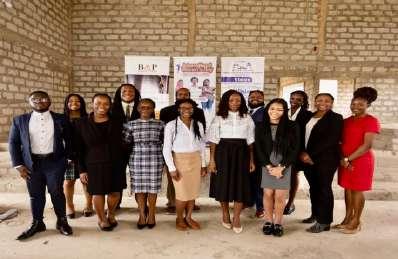

Ohhema, subsidiary of La Carte LTD, in partnership with the Accra Metropolitan Assembly (AMA), has donated over 1,500 Ohhema! sanitary pads to Kayayos in commemoration of the 2023 International Women's Day (IWD). The donation and sensitization program were held under the theme, ‘Empowering Kayayos with knowledge on good feminine hygiene and reproductive health care’.
La Carte LTD, the sole producer of Ohhema! sanitary pads, mission is to help educate young woman about the importance of menstrual hygiene and general well-being. The programme saw Kayayos girls receive practical training on practicing good hygiene, including properly using and disposing of sanitary napkins.
Abena Dobmaah Amoanu Arthur, Project Manager for La Carte Company Limited, highlighted the importance of creating awareness on menstrual hygiene and female
wellbeing. She emphasized that “[Ohhema!] goal is to ensure that no woman or girl goes without basic sanitary materials and [our duty] is to motivate young girls to practice good hygiene.
Our greatest interest in operation is to contribute to the creation of awareness on menstrual hygiene and female wellbeing. As part of our obligations, we want to reach out to Kayayos girls who are obviously a greater part of the marginalized group who have a greater challenge in having access to menstrual materials,” she explained. However, recent statistics have shown that sanitary pad taxes in Ghana have risen past 40percent, driving up the cost of sanitary pads to an exorbitant level that is di cult for adolescent girls and women with lower incomes to a ord.
Consequently, she made a clarion call to the government to remove taxes on pads to make them a ordable for the ordinary Ghana-
ian woman.
“We are urging the government to either lower the tax on sanitary pads or remove taxes altogether in light of this urgent problem. If taken into account, sanitary pads will be less expensive, allowing every young woman in the country, regardless of economic status, to a ord what she needs to experience menstruation and, as a result, practice menstrual hygiene,” she said.
Mariam Mensah, Head of the Social Welfare and Community Development Department at the Accra Metropolitan Assembly (AMA), applauded the collaboration with Ohhema!, which is in line with the AMA's core function of initiating programs aimed at providing basic infrastructure for people within the assembly. She reiterated the importance of supporting any cause that seeks to help achieve these goals.
“It is the AMA’s priority to improve the well-being and
healthy living among women in the Accra metro and partnering with this initiative is one of them. We are solely in support and appreciate Ohhema! for this generous deeds,” she said.
Prior to this, there had been several discussions with the Kayayos about what they would like to do to get them o the street. The majority of them want to pursue vocational training, and the AMA is mobilizing the necessary resources to fund and assist these women in achieving their goals.
This year's theme for International Women's Day is #EmbraceEquity, which calls for the recognition that each person has di erent circumstances, and allocates the exact resources and opportunities needed to reach an equal outcome. Ohhema! donation and sensitization program is a step towards achieving this goal and improving the well-being and healthy living among women in the Accra metro.

Chinese Foreign Minister Qin Gang held a press conference Tuesday on the sidelines of the rst session of the 14th National People's Congress in Beijing.
"As the world is undergoing major changes unseen in a century, China will continue to pursue the independent foreign policy of peace and continue to implement the mutually bene cial strategy of opening-up," Qin said in the opening remarks.
China will always be a builder of world peace, a contributor to global development and a defender of the international order, he said.
Here are some of the highlights of the press conference.
Chinese modernization
Chinese modernization o ers solutions to many challenges facing human development, Qin said.
Achieving the modernization of a country of more than 1.4 billion people will be an unprecedented feat in human history, one of profound global signi cance in itself, he told reporters.

"It busts the myth that modern-

ization is westernization. It creates a new form of human advancement, and it provides an important source of inspiration for the world, especially developing countries," he said.
China-Russia ties
The relationship between China and Russia is based on the principles of non-alliance, non-confrontation and non-targeting of third parties, Qin said.
With China and Russia working together, the world will have the driving force toward multipolarity and greater democracy in international relations, and global strategic balance and stability will be better ensured, he added.
China-U.S. relations
The U.S. perception and views toward China are seriously distorted, Qin said.
China hopes the United States will explore the right way to get along with China to the bene t of both countries and the entire world.
Read more: Chinese FM: U.S. perception, views toward China seriously distorted Taiwan question
How to resolve the Taiwan question
is a matter for the Chinese people and no other country has the right to interfere in it, Qin said. "We will work with the greatest sincerity and exert utmost e orts to achieve peaceful reuni cation, but will reserve the option of taking all necessary measures," he added.
Ukraine crisis
Qin called for "calmness, rationality and dialogue" to solve the Ukraine crisis, which he termed a tragedy that could have been avoided.
Qin said the Ukraine crisis has come to a critical juncture, and con ict, sanctions and pressure won't solve it. China chooses peace over war, dialogue over sanctions, and lowering the tem-
perature over fanning the ame, he said.
Belt and Road Initiative
The Belt and Road Initiative is a high-quality public good initiated by China and jointly built by all partners, whose bene ts are shared by the world, Qin said, adding that it is never China that should be accused of creating the so-called debt traps. The Belt and Road Initiative has attracted the participation of over three-fourths of countries in the world and 32 international organizations, created some 420,000 jobs in countries along the routes and helped lift nearly 40 million people out of poverty over the past decade, he added.
The Chairman of the Global Chamber of Business Leaders (GCBL), Dejan Stancer, has called for women around the world to be given top posts in multilateral institutions like the United Nations (UN), the International Atomic Energy Agency and the World Bank.
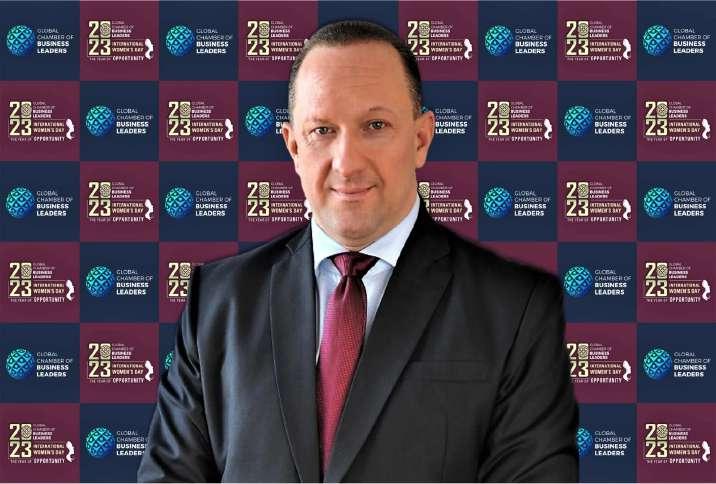
Mr. Stancer made the call in a speech during a virtual conference organized by the Global Chamber of Business Leaders on March 8, 2023, to celebrate the International Women's Day (IWD).
The 2023 edition of IWD was held under the global theme: 'DigitALL: Innovation and technology for gender equality' and was celebrated worldwide to help raise awareness about the need to create equal opportunities for both women and men in the digital or technological world.
Speaking under the special theme for the virtual conference: "Unleashing The Power Of Innovation And Technology For Gender Equality," Mr. Stancer bemoaned that "women have held just 12 percent of the top posts in the 33 largest multilateral institutions
since 1945, and more than a third of those bodies, including all four major development banks, have never been led by a woman."
He explained that since 1945, the 33 multilateral institutions have had 382 leaders, of whom only 47 were women, adding that "and despite progress in recent years, only one third of institutions are currently headed by women."
According to him, ve of those bodies have only had one female president in their history, and that includes the current head of the World Trade Organization (WHO), Ngozi Okonjo Iweala.
Among the 13 institutions that have never had a woman at their head, Mr. Stancer mentioned, are the World Bank, the UN, the International Atomic Energy Agency (IAEA) and the Food and Agriculture Organization (FAO).
Giving reasons why women must be given opportunities to head multilateral institutions, Mr. Stancer made a demographic
argument, saying "Women make up 50 percent of the world's population, so it's demographic justice to begin with.Women bring a combination of leadership, wisdom and empathy. Sometimes women have an even greater understanding of what's going on in the world, and about geopolitics."
Meanwhile, he said at the Global Chamber of Business Leaders, the situation is completely di erent, saying the share of women occupying leadership positions is
almost 46%.
"In the working bodies of GCBL, as we call the committees, of which we have established six, the proportion of women is as much as 50%," he said.
According to him, "Appointments to the GCBL are never made on the basis of race, color, political or religious belief, and especially not on the basis of sex. At GCBL, we appoint exclusively on the basis of knowledge and experience. With us, everyone has the same opportunities, even to occupy the highest positions in the organization."

Stanbic Bank Ghana, as parts of e orts to promote a happier, healthier and collaborative workforce organized a health walk for their sta on Saturday March 04, 2023. Held under the theme ‘Ties That Bind,’ hundreds of enthusiastic sta across the city showed up to participate in the 2-hour hearty walk.
Speaking at the event, Mr. Mawuko Afadzinu, Head of Marketing at Stanbic Bank, encouraged sta to work towards a healthy lifestyle by making exercise a priority in order to live a ful lled life.
He said, “At Stanbic Bank we strive to give our wonderful customers the best banking experience whenever they walk through our doors. But we cannot deliver on our brand promise if we as a group do not work together or are not in good health. That
is why we have gathered here today as one big ‘Blue’ family to walk together and engage in di erent exciting team building activities.”
He added, “As workers, most of us have sedentary lifestyles which is attributable to the number of hours we spend in the o ce daily. We need to be mindful of our lifestyles and prevent ill health through reasonable exercises’’.
Mr. Afadzinu went on to commend the sta of the bank for their commitment to work and their role in the success of the company.
He said, “We are only three months into 2023 but we have already received a number of awards including our recognition as the customer service leader in the Ghanaian banking sector at the 5th Customer Service Index (CSI). These achievements would
not be possible without the hard work of our loyal sta . Thank you all for your e orts and I know this year will be lled with many more successes.”
The 8.6km walk began from Stanbic Heights, the Headquarters of Stanbic Bank Ghana at Airport, to Lands commission through to the Ghana Police Headquarters and
back to Stanbic Heights, under the guidance and instructions of The New You team. The bank employees gathered for an intense aerobics session and other team bonding exercises at the forecourt of Stanbic Heights, after which they had their bodies checked by chiropractors from Solace Medical Centre and Patholab
The Parliamentary Select Committee on Health has assured that it would ensure the strengthening of the larval source management programme targeted at immature mosquitoes to support the elimination of malaria in the country.
According to the committee, despite some challenges they witnessed, the programme was a critical component of any e ective integrated vector management (IVM) targeted at killing immature mosquitoes before developing in stagnant water to cause malaria.
The chair of the Health Committee, Dr. Nana Ayew Afriyie, gave the assurance while addressing the media after an inspection tour of mosquito breeding sites in various districts in the Ashanti Region, Thursday, March 2, 2023. Touching on the problems, he indicated that some of the breeding sites they visited in Tafo, for instance, had dried out due to the dry season.
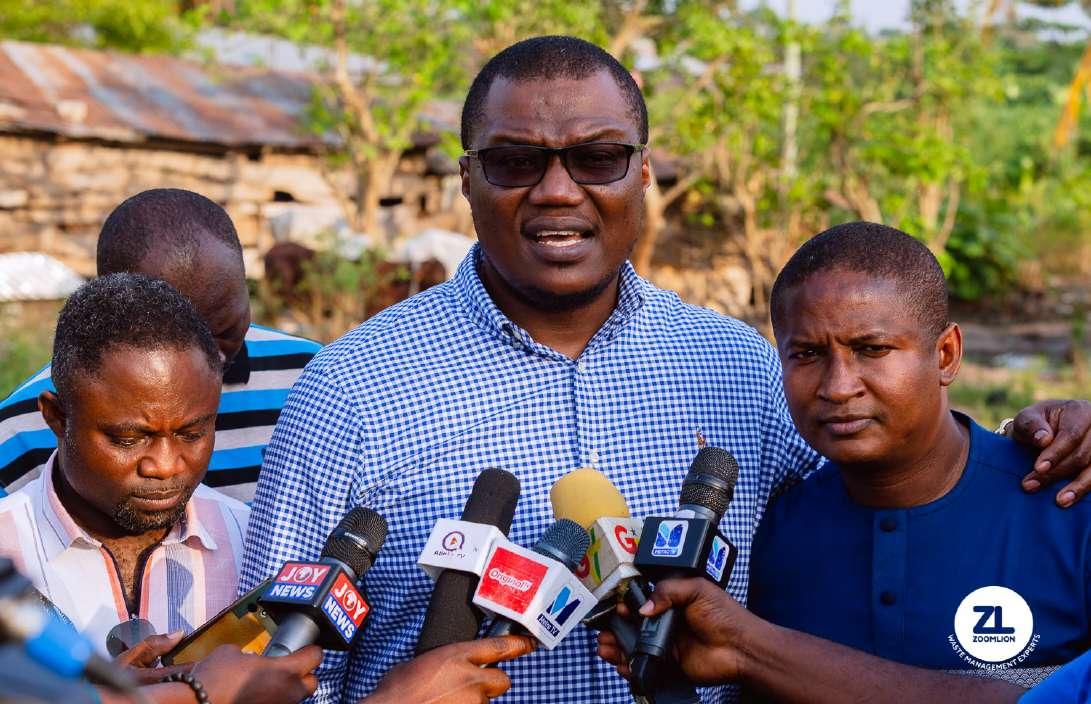
“We were struggling to nd the breeding sites, which originally would have to be mapped out, and easily assessed. But then also it was di cult for us to assess these sites.
He also observed that some of the sprayers trained to undertake the spraying exercise were also a challenge.
“For some reasons, some of them [the workers] have left the job so you have a huge population, wide coverage area, but few peopleabout 8 or 9 - doing the spraying. It tells you that they are struggling. And so, therefore, work is being done but it won’t be e ective,” he added.
These challenges notwithstanding, Dr. Ayew Afriyie asserted that larviciding was an e ective tool that can be used to manage insecticide resistance in malaria control in the country.
“So, as I said, it is a strengthening exercise. We are trying to get it better because the technocrats keep saying it is a very good intervention. So as part of our oversight responsibilities, we would
strengthen the course of this project,” he rmly assured.
He was, however, happy to learn that there has been a reduction in the number of reported cases of malaria and also under-5 mortality from 0.04 in 2018 to 0.00 in 2022 in the Sekyere East District.
“Per available gures, we are being told that malaria cases at the OPD have been on the decline from 2018 where it was 413.1 per a population of 1,000 to 270.4 per 1,000 population,” he said.
On the issue of increasing budgetary allocation for the project, Dr. Ayew Afriyie, who is also the Member of Parliament (MP) for E duase Asokore Constituency, averred that his committee would weigh both sides of the argument and take a decision on it.
More importantly, he said the committee would push Zoomlion to sit up to ensure value for money.
“So what happens is that each place we go we need to have the structure. The structure, he explained, therefore, means that we need to know the operational team on the ground. So we are going to be so much on them, and sometimes we are going to do surprise visits which we will not tell them we are going to this area,” he noted.
This, he stressed, would make
Zoomlion sit up and ensure that Ghanaians get value for money in the larval source management programme.
The Ranking Member on the Committee and MP for Juaboso, Hon. Kwabena Mintah Akandoh, said they have engaged the management of Zoomlion and charged them to address the challenges confronting the project, particularly those that emanate from the company.

“We have held discussions with the management of the company and they have agreed to increase the salary and also clear all the backlog of salaries,” he indicated.
However, he underpinned that the goal of the committee was the success of the project and its impact.
For his part, the Deputy Ranking Member of the committee, and an MP for Nabdam, Dr. Mark Kurt Nawaane, expressed: “my observation is that there seems to be a disconnect between the ght for environmental cleanliness’ and the ght against malaria."
He explained that this was evident in the appalling conditions of the many breeding sites that they had visited.
“I believe that it is like a vicious cycle where you come and try to kill the mosquitoes. You leave the environment in that order; the
water is not moving; the drains need desilting; we don’t do it, and; they [the mosquitoes] will de nitely reoccur. This is because we don’t kill the mosquitoes to zero: we kill some of them and some of them remain,” he said.
Earlier at a brie ng at the Sekyere East District Assembly, the Medical Superintendent of E duase Government Hospital, Dr. David Antwi-Agyei, revealed that malaria OPD cases have been on the decline from 2018 where it was 413.1 per 1000 population to 270.4 per 1,000 population in 2022.
He further disclosed that severe malaria cases have plateaued over the same period, adding that "case fatality of malaria declined from 0.04 in 2018 to 0.00 in 2022,”.
The Coordinator of the Larval Source Management Programme (Mosquito Control Programme) for Zoomlion, Reverend Dr. Ebenezer Kwame Addae, admonished Ghanaians to have a positive attitude towards the environment "so as to help the country's e orts in curbing malaria."
The committee visited some breeding sites in Tafo and E duase, which a orded the members the opportunity to observe the operations of Zoomlion, and also interact with the community members.
As we celebrate International Women’s Day (IWD), I do my hat o to all women in Agriculture who have continuously overcome barriers and positioned themselves as key drivers of economic growth.
Marking the day with the theme, “Embracing Equity,” it has become necessary to advance gender equality by raising continuous awareness about discrimination and creating a platform for equal opportunities for both men and women.
Although the role of women in agriculture is undeniably important to the economic development of our country, many of them continue to face challenges such as lack of access to land for farming, lack of collateral to access nancing, inadequate basic tools and processing equipment. Some of these challenges are as a result of some misconceptions and one way of closing the gap would be to expose and discredit them.
Misconceptions about women in Agric - Women do not play signicant roles in large- scale agriculture
There is a misconception that women engage only in small-scale agriculture and do not play a signi cant role in large-scale agriculture. Over the years, women are now seen to be more involved in the entire agricultural value chain, from farming to production to marketing of the nal produce, thus the need for their contribution to the sector to receive the needed recognition to show that women have evolved from small-scale agriculture to large-scale farming just like their male counterparts. This will go a long way toward motivating more women to enter the industry. Women are not a pro table consumer market
Because of the ght towards gender equality, companies within the various stages of the value chain have started engaging female farmers to provide them with input and resources to be at par with their male counterparts. As the ght towards gender parity continues to increase globally, we will begin to see a more prominent shift toward catering to women in agric.
Embracing equality
Providing women with necessary support in terms of the prerequisite skills for production, process-
ing and marketing will serve as a way of ensure equality in the agricultural sector, putting them at par with their male counterparts.
In the past, it was easier for a camel to go through the eye of a needle than it was for a woman in agric to get access to lands for farming. Although this is gradually changing, many women still face this challenge. To sustain the agricultural sector, it is imperative that women be granted land as easily as it is for men to access farm lands.
Knowledge they say is power. However, I believe that power lies in knowing how to apply knowledge. We have seen that in the ght for gender parity, there are plethora of seminars and workshops for women in Agric. But when it comes to hands on training where women can implement what has been taught in the seminars on the farm, women are found to be lacking in that regard. Opportunities such as hands-on practical training must be made available to enable female farmers to stay abreast of what needs to be done on the farm or in their various agribusinesses for wealth creation.
Female farmers nd it di cult accessing funding because of lack of collateral. When a woman wants to start or expand her Agribusiness, the chances of securing a loan are heavily stacked against her as compared to her male counterparts. As we search for measures to put in place to ensure equality between men and women in accessing nance, the nancial ecosystem should be redesigned to provide opportunities for women to access funding without being asked to present collateral especially in instances where she may not have any.
The practical story of two successful women in agribusiness
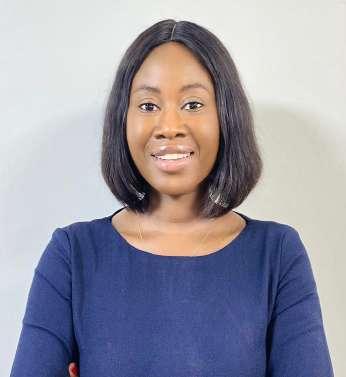
That notwithstanding, it is worth highlighting the remarkable contributions and or achievements of 2 women in the Agriculture sector as well as some challenges still facing them.
1.Edith Wheatland Akorsa
Edith Wheatland Akorsa, CEO of Rockland Farms Company Limited operates a 100,000 capacity
integrated poultry farm located in the Ashanti region of Ghana. Established in 2013, The company has two subsidiaries – Eco Feeding Company and Rockland Meats. Rockland Meats is into the production, processing, and distribution of locally produced chicken, which is packaged under the brand name Akoko Tasty. Together the companies have over 150 workers, which included trained broiler out-growers that support Rockland Farm’s supply chains, boosting its production capacity to more than 200,000 birds per cycle. Rockland Farms provides training and other support to 3000 maize out growers (2 acres average) who supply maize to feed the farm. Edith attributed the growth of Rockland Farms Company to funding from the Agricultural Development Bank (ADB) PLC in 2015 and at the time, the company was an 8500 capacity farm with seven workers. “Through ADB’s support, the company met its nancing obligations enabling it to grow to over 100,000 capacity today with over 30 sta ,” she added. Describing the poultry sector and gender, the CEO of Rockland Farms Company, stated that the sector is traditionally male dominated and is not accepting of women leading in most of the segments along the value chain. However, she had observed that over the years, there has been a certain level of acceptance and getting support as a woman entrepreneur is better and easier now than it used to be. She also added that the general work environment in the poultry sector is improving and economic as well as leadership opportunities for women are opening up more speedily. Edith stated that support from males in the sector is also more accessible now than before. She noted that there was the need for the reorientation of women to leverage the wind of change blowing through capacity building and self-con dence to achieve their potentials.
2.Janet Adade
Janet Adade, owner of Elsjyne Enterprise, an Agribusiness venture in the Oti Region. She is a rice and cocoa farmer who also processes, packages and markets her produce. She is also into mechanization and provides machinery and training for about 2000 women farmers. Janet
Adade began farming in 2010 when she decided to relocate to the Oti Region from the Greater Accra Region. Her rst challenge she stated as woman venturing in Agribusiness was her being prevented to farm on her Father’s land just by being a woman and not having the right to do so because women do not inherit in their family. Janet mentioned that she had observed was that, although over the years, many organizations have been established to support women in Agribusiness, most women belittle themselves into thinking that they are still not good enough to be at par with their male counterparts and think that their male counterparts should receive these grants. She said there was the need for sensitization and education of women for a renewal of minds for them to know that they are enough and capable to do what their male counterparts are doing and more. On the issue of access to nancing, Janet mentioned that it was still a struggle as majority of women did not have adequate resources to access loans or facilities to expand their businesses and most often than not, men are prioritized. “If women are given the same opportunities as men, it will pave the way for female farmers to increase production 20-30 times more.”
Conclusion
While times are changing and women seem to be given more opportunities than they were before paving the way for equality, the Agricultural sector still remains a male dominated sector with women still facing some of the challenges, including those stated above.
Therefore, as we celebrate International Women’s Day, let us all rise together to promote women’s equality within the Agricultural sector and all other sectors.
The world is at last waking up to the ways in which economic interconnectedness ampli es the risks of geopolitical turmoil. But while there is good reason for countries to boost resilience, a wholesale shift from integration to fragmentation, driven by geopolitical hostilities, bodes well for no one’s peace or prosperity.

The global economy is not there yet. While capital ows have declined considerably from their 2007 peak of $12 trillion (22% of global GDP) – a trend that began with the 2008 crisis – economic integration remains strong. Total global trade in goods and services exceeds $40 trillion – a tenfold increase since 1990.
But, from 2016 to 2021, trade restrictions nearly doubled worldwide, owing primarily to tensions between the United States and China. In fact, fragmentation – like globalization before it – would not be possible without China, whose rise transformed the regional competition for economic, nancial, and geopolitical clout into a global one. While some hope to balance rivalry with engagement – the European Union views China as “a partner for cooperation, an economic competitor, and a systemic rival” – the dynamics are obviously complex.
The COVID-19 crisis and Russia’s war against Ukraine have also contributed to fragmentation, as they have spurred countries to embrace “onshoring,” “near-shoring,” and “friend-shoring” with a growing sense of urgency. Yes, the pandemic showed that e ciency and cost-e ectiveness do not necessarily square with economic security. But while adjustments are needed to strengthen supply-chain resilience, returning to a world divided into economic (and geopolitical)
blocs holds serious risks. We have been here before. Recall that World War I ended three decades of economic integration, showing that “doing business together” is not a su cient condition for peace. But it is a necessary one.
The economic costs of fragmentation are already mounting. For starters, according to the International Monetary Fund, trade fragmentation could reduce global output by between 0.2% and 7%. Moreover, while trade and trade-related transmission channels have dominated discussions about the risks of fragmentation, international nancial and monetary integration is also in peril, and the risks are not as slow-moving or moderate as many seem to think. Consider sovereign debt. Here, fragmentation is re ected in the heterogeneity of creditors and contracts. In addition, key o cial creditors are divided along geopolitical lines: China is the largest bilateral creditor for developing countries, having lent them about $498 billion in 2008-21. For comparison, the World Bank lent these countries $601 billion over the same period.
Debt resolution remains the gaping hole in international governance. Countries with unsustainable debt positions lack incentives to address them in a timely way; on the contrary, the fear of losing market access deters such action. But with tighter nancial conditions worsening the debt positions of poor countries in Asia, Africa, and South America – 15% of which are already in debt distress, with another 45% at high risk – an agreement on debt resolution is urgent.
The problem is that fragmentation is hampering negotiations, not least because disunited credi-
By Paola Subacchitors eschew bailouts and haircuts – the main tools used for debt resolution. This was the case just last month, when – on the fringes of the G20 Finance Ministers’ and Central Bank Governors’ Meeting in Bengaluru, India – the IMF brought together representatives from the G7, China, India, Saudi Arabia, and the World Bank to strengthen the framework for resolving sovereign-debt distress.
At that meeting, the G7’s request that sovereign creditors accept haircuts along with private creditors fell on deaf ears. China, the largest external creditor to two of the most urgent cases – holding 35% and 20%, respectively, of the total external debt of Zambia and Sri Lanka – insisted that it was multilateral institutions like the World Bank that needed to accept haircuts, putting an agreement out of reach.
Debt resolution is an important example of the kind of international policy cooperation that is needed to avert global economic fragmentation – cooperation that must include China. But where to begin? A good starting point would be to align China’s incentives with those of other bilateral creditors, multilateral institutions, and the private sector.
More broadly, the G20 should attempt to nd common ground among global actors, and work to strengthen policy cooperation in areas with the broadest consen-
sus and the least scope for political tension. For example, it could launch a coordinated initiative to build a global digital platform for international remittances, which would enable migrants around the world to send money home securely and without extortionate fees. Multilateral mechanisms are needed to prevent unilateral action from producing international spillovers and deepening economic fragmentation. As digital currencies and new platforms become available to settle cross-border payments, countries’ national-security concerns, domestic economic objectives, the need to create bu ers against geopolitical shocks, and sheer economic rivalry will encourage them to embrace these new systems as a means of reducing their dependency on the US-dominated nancial system. Financial fragmentation will become entrenched, and nancial risk management will be signicantly weakened. This is not a desirable path.
Over the past three decades, economic integration and cooperation enabled the global economy to triple in size, lifted approximately 1.5 billion people out of extreme poverty, and supported peace and prosperity around the world. To ensure that we do not squander these gains, let alone undermine our ability to confront the challenges of the future (not least climate change), we must nd ways to uphold some level of integration and e ective cooperation.
The Northern Regional Minister, Honourable Shani Alhaji Shaibu, has praised the Ghana National Petroleum Corporation (GNPC) for its national and local communities based developmental initiatives aimed at improving the lives of Ghanaians.
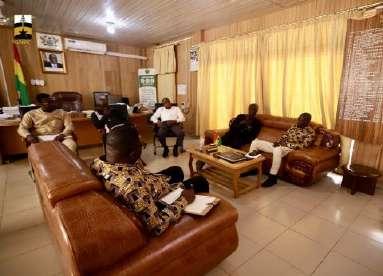
During a courtesy meeting with the Executive Director of the GNPC Foundation, Dominic
Eduah (PhD) who is currently leading a team in the region to hand over some completed GNPC funded projects, the Minister reiterated the importance of GNPC’s CSR activities in building communities and people, and reposing faith in the Corporation’s business as an SoE. He further encouraged the Corporation to maintain strong
collaboration with the various MMDAs in identifying the core needs of communities and in the designing of interventions.
Dominic Eduah (PhD), on his part, thanked the regional minister and assured him of GNPC’s commitment to utilizing part of the revenues from Ghana’s oil activities to meet the needs of communities and people in dire
need of them.
The Africa Centre for Minerals, Mining, and Sustainable Development (ACMMSD), a Centre with the purpose of promoting legal and sustainable mining, especially small-scale mining of minerals in Ghana has been launched in Accra. In a press release to mark the launch, the Executive Secretary of the Centre, Edwin Letsa K. Kpedor underscored the importance of the Centre in ensuring stakeholders in the extractive sector understand and adopt sustainable means in the mining of minerals to ensure our environment is protected, preserved, and re-claimed following successful small-scale mining activities.
“In our communities today, we are experiencing the negative e ects of illegal and unsustainable mining practices on our water bodies, forests, farms, and communities. Therefore, the focus of the Centre is to support stakeholders engaged in the regulation, supervision, and small-scale mining of minerals to adopt new sustainable practices to ensure we reverse the current trends of environmental degradation, water bodies pollution, and forest destruction as being
witnessed across our mining communities.”
He further noted that the role of the Centre will be to “coordinate the practical implementation of legal and sustainable mining solutions and consolidate interventions that seek to promote sustainable livelihoods, particularly for women and young people in the mining communities across Ghana”.
The release further noted that the Centre is committed to harnessing resources to drive the regulation and supervision, advocacy, training, support, and stakeholder engagements across the various mining communities especially in the Ashanti, Eastern, Central, and West-North regions of Ghana.
“Our initial assessment of the small-scale mining regime across the country revealed these regions are the hotspots for illegal (galamsey) and unsustainable mining practices and we seek to prioritize our activities in these regions,” Mr. Kpedor noted.
Commenting on the Centre’s planned activities, Richard Nunekpeku, Director for Programmes and Projects noted that, “the
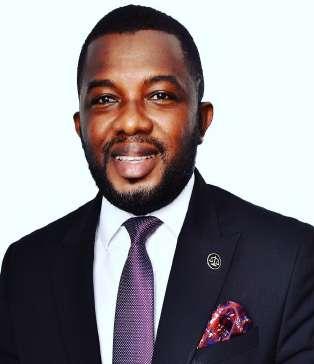
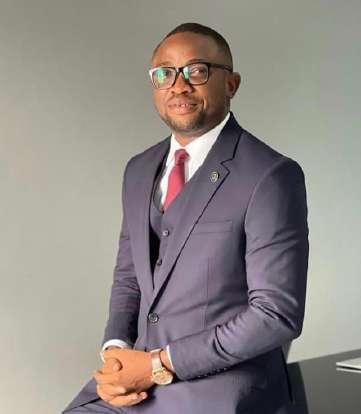
Centre will provide direct training and capacity building to key stakeholders such as small-scale miners, traditional authorities, o cers of district assemblies and related service providers to improve their knowledge of the use of legal and sustainable mining practices.”
Additionally, the Centre will undertake research and publication, advocacy, engage in policy formulation and provide technical and nancial support programmes to small-scale miners in its operational communities.
“Our approach will be to provide
comprehensive support services which will help stakeholders to commit fully to the adaptation of sustainable practices that deliver results. We recognize the need to facilitate the availability of legal, regulatory, training, land management, mining, and sustainable community development support programs and are committed to doing these as part of our engagement programmes and initiatives,” Mr. Nunekpeku said.
In the blockchain industry, gender disparity continues to be apparent, where women's involvement and representation are noticeably lower compared to men. Although the exact numbers vary depending on the source and the speci c industry area being analysed, studies consistently show that women are underrepresented in blockchain and cryptocurrency in general.
The Global Crypto User Index reports that of the 378 venture-backed crypto and blockchain companies founded globally between 2012 and 2018, only one had an all-female founding team, and only 31 (8.2percent) had a combination of male and female founders. Outside of leadership, women are also grossly under-represented in the workforce, with 95percent of people in the blockchain industry being men. Notably, bridging the gender gap in blockchain will bring nancial inclusion and economic empowerment to women globally, which will invariably have a strong impact on reducing poverty, increasing education, and overall
development of local communities. This is apparent because improving gender economic equality leads to remarkable communal growth and development.
Bridging the Gap Blockchain technology has endless possibilities but for it to succeed, inclusivity is key. Still, it can only be fully realised if organisations recognize that all individuals play an integral part in the success of their operations.

To address the gender gap in the blockchain technology sector, it is crucial for relevant stakeholders, such as government agencies and private organisations, to invest signi cant resources in education, adoption, and nancial inclusion for women. Collaboration between the public and private sectors is necessary to achieve inclusive economic empowerment for women in this industry. By committing resources to these e orts, stakeholders can e ectively bridge the gender gap and create a more equitable and thriving blockchain technology sector.
Binance, through its philanthropic arm, Binance Charity, uses the
platform to promote women’s contributions to the blockchain. Its 8-week boot camp in collaboration with Utiva, for example, was established to equip women with the necessary tools and skills required for a career in blockchain. The training program covered several essential topics, including blockchain fundamentals, cryptocurrency basics, decentralization, web3, and the metaverse. Additionally, participants engaged in practical, hands-on projects to develop crucial critical thinking skills and tackle real-world issues with practical solutions.
As an organisation, Binance continues to address inequality in the blockchain industry, through
inclusive and transparent employment principles. Remarkably, its e orts continue to pay o , witnessing an impressive turnaround in the perception, and participation of women in the world of blockchain.
The advancement in blockchain technology should be fueled by values that prioritise quality contributions, disregarding gender, race, or political a liations. After all, The peer-to-peer system inherently embodies equality, with signi cantly lower barriers to entry and use compared to traditional nancial markets. Inclusivity is paramount, as the blockchain industry strives to achieve critical mass and promote widespread adoption.
Wednesday 8th March 2023 marks this year’s edition of International Women's Day (IWD 2023), a global holiday celebrated annually as a focal point in the women's rights movement, bringing attention to issues such as gender equality, reproductive rights, and violence and abuse against women.
IWD 2023's campaign theme aims to get the world talking about why equal opportunities are no longer enough. Imagine a gender equal world. A world free of bias, stereotypes, and discrimination. A world that is diverse, equitable, and inclusive. A world where di erence is valued and celebrated.
It is believed that everyone everywhere should have the right to access the transformative power of the internet. Internet access has become an essential part of modern life, necessary to ensure freedom of expression, political participation, health, and other fundamental rights.
Internet access provides an invaluable space where marginalized communities initiate social change and identities are created. However, it is estimated that over sixty percent (60%) of people around the world, most of them being women and girls, continue to be excluded.
As a Cybersecurity Analyst who has risen through the ranks, I have realised that women’s chances of bene ting from the advantages of the internet and Information Com-

munication Technology are one –third less than men’s and the gender gap means that 200 million fewer women than men are online.
As we strive towards true gender equality, we know that access to the internet is critical for women’s empowerment with several benets including the possibility for women and girls to build social capital through virtual networks and online associations.
Also, providing a public space to make important information on women’s rights universally available, supporting women to claim and demand their rights as well as creating new possibilities for education and employment for women and girls in the digital economy.
An important element in the drive to bridge the gender gap is the representation of women in technology elds. Currently, women worldwide are under-represented in the various technology elds. Globally, women make up only one quarter of scienti c researchers and only twelve percent (12%) of engineers in the world are women.
The number of women in tech worldwide has continued to steadily rise in recent years; however, the numbers remain very low comparatively. At this current pace, it will take 12 years before women see equal representation in tech. In addition, if you think that sounds
By Eunice Gollohbad, at the current pace, it will take more than 200 years until the economic gender gap is closed.
At the end of 2020, women made up nearly 29% of the tech workforce, according to data from AnitaB.org (a global organization for women technologists). Women currently hold only 26.7% of tech-related jobs. Tech rms with more than 10,000 employees report women's representation at 26.2%. The percentage of women in all tech-related careers has actually decreased over the last 2 years.
The drop-o rate for more advanced study in these elds amongst women is generally high due to stereotypes, the dominance of men in IT elds, industry’s lack of policies for inclusion of women, and skills gaps in STEM areas.
It is important to relook at our national policies, which focus on women and their career develop-
ment. National policies should encourage increased access, training and use of the Internet for women and girls. Women should be empowered and encouraged to pursue careers in technology with concrete targets for gender equity in this area.
In addition, the various scholarships and grant programmes should be made available to support women in science and technology training and research, and ICT-related business training programmes should target women to promote and assist women tech entrepreneurs.
Over the years, national ICT plans or strategies include a rhetorical commitment to gender equity, but fail to translate this into concrete, measurable targets backed by resources.
There should be concrete targets for gender equity in ICT access and should be backed by speci c programmes that have been allocated an adequate budget, and there should be a plan to collect timely gender-disaggregated data to monitor the target. It should be real action and not lip service!
The writer is the President & Founder of Impact Wave Initiative and Chief Executive O cer & President of HKG IT Consulting





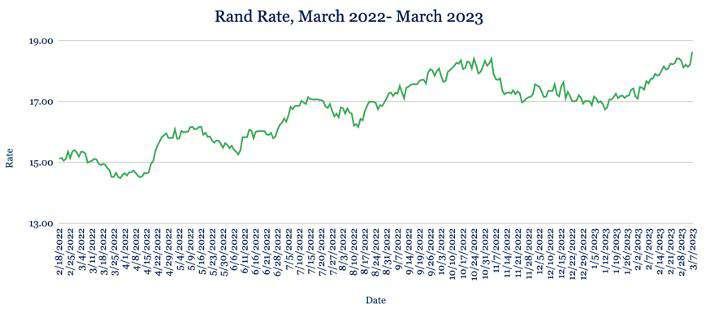
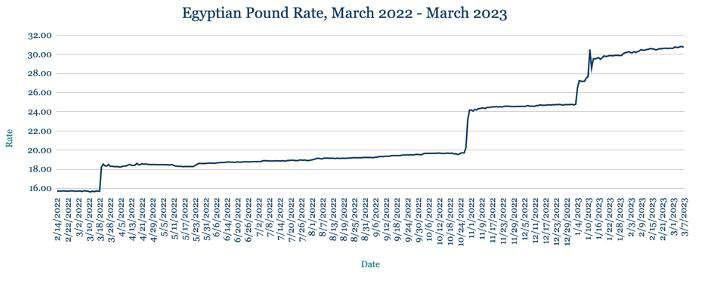
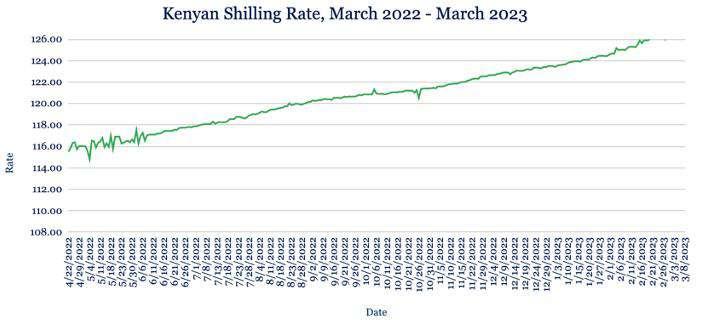
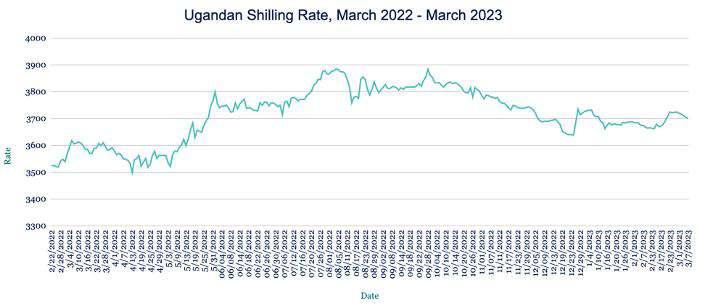
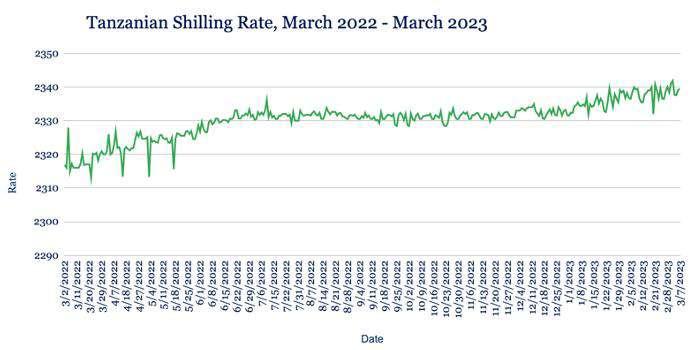


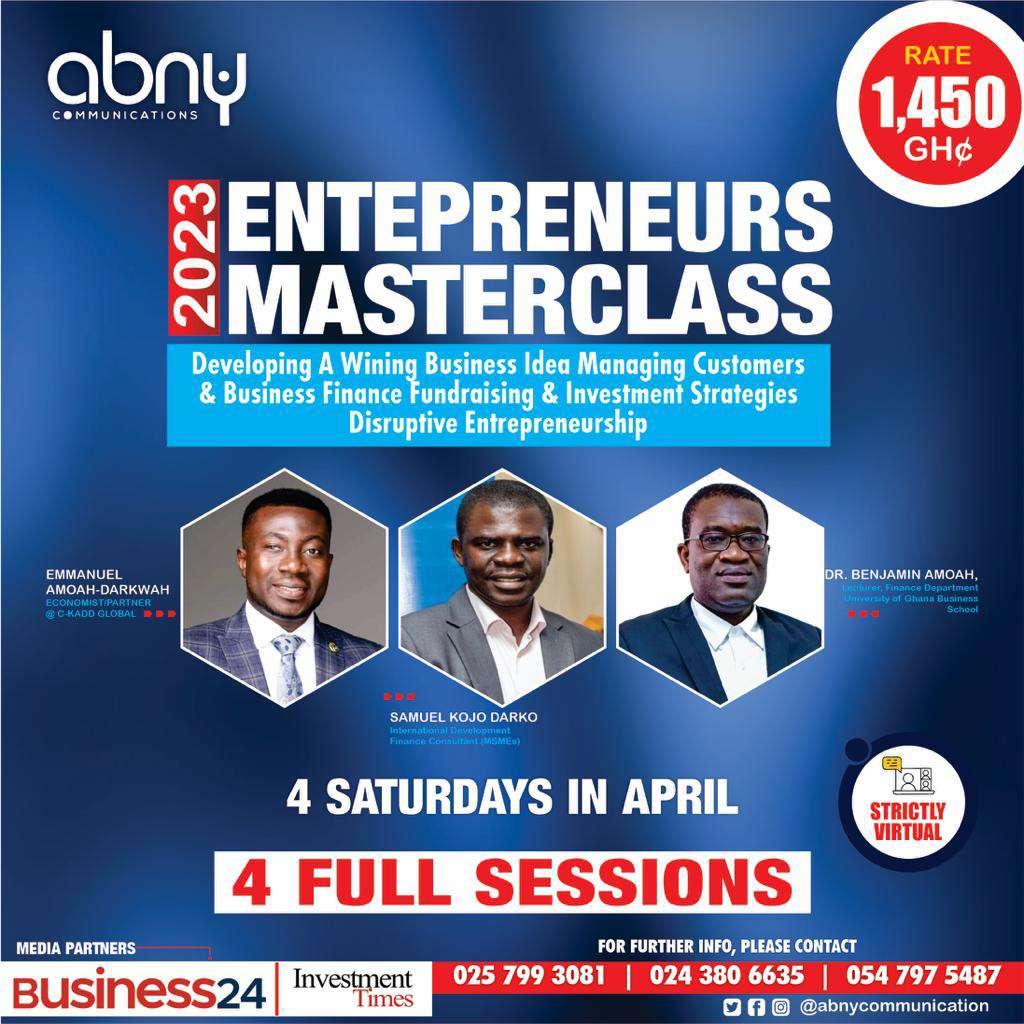
s stt ffo orr tth h e e lla a s stt tth hrre e e e m m o o n ntth h s s h hiit t ¢ ¢ 4 4 4 4 16 6 b b n n B B o o n n d d m m a arrk k e ett d d e e c clli i n n e e s s b b y y a a b b o o u utt 5 5 2 2 5 5 0 0 % % iin n m m a arrk k e ett ttu urrn n o o v v e err iin n tth h e e m m o o n ntth h o off F F e e b brr u u a arry y 2 2 0 0 2 2 3 3 T--b biil lll s s:: g g o o v v e errn n m m e e n ntt p p u u s s h h e e s s iin n v v es stto orrs s tto o b biid d b b e ello o w w 3 3 0 0 % %

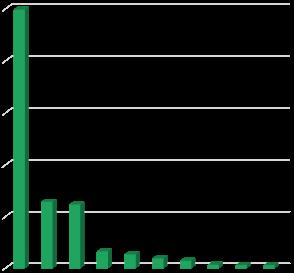



Spotify’s second Stream On event was held yesterday, and music artists, songwriters, video and content creators, and podcasters from all over the world joined Spotify for a day of announcements, inspiring stories, and hands-on demos of new tools and resources coming to the global creator platform.
“Stream On is about all the ways we are bringing Spotify to life and letting creators at all stages of their careers know that we are open for business. We are focused on building the best home for them – a place where they can establish a career, thrive and grow and where the world can be inspired by their creativity,” Spotify Founder & CEO Daniel Ek shared during the morning keynote presentation.
He continued, “And that’s what we’ve been doing for almost 17 years: building, improving and reimagining this home to better meet creator needs and help them chart new pathways to success.
As we look to the future, we are excited to expand that ambition to even more creators across new formats. We’re enabling more creativity, discovery and personalization than ever before by providing the best resources, support, and interactivity.”
Doubling down on helping creators and artists be discovered Spotify kicked o Stream On by doubling down on discovery, revealing a reimagined interface that leverages new visuals, and a completely new and interactive design — all to drive deeper and long-lasting connections between creator and listeners.
The new Spotify experience will roll out in waves beginning today to its 500+ million monthly active users — below is a snapshot of what to expect in Ghana: With Smart Shu e, we’re introducing a new way to inject new music that perfectly complements an existing playlist with just the tap of a button.
Building on the success of pod-
EDITOR: BENSON AFFUL editor@business24 com gh | +233
cast previews, creators can choose or have Spotify automatically generate Previews of their music and podcasts for users to sample before they play or save.
Just like with music, Spotify will now serve Autoplay for Podcasts — when a podcast ends, another episode will automatically start playing that ts the user’s tastes and is relevant.
“Spotify recommendations drive close to half of all users’ streams. And when listeners decide to follow a creator, they listen to, on average, ve times more of their music,” said Gustav Söderström, Spotify Co-President and Chief Product & Technology O cer. He continued, “That’s why discoveries on Spotify—unlike many other platforms—give creators so much more than just a eeting moment of viral fame. Those meaningful, long-term connections are a key part of what makes Spotify a platform for professional and aspiring artists.”
Helping creators build and grow audiences with new and enhanced tools.
spotify showcased a suite of Spotify for Artists tools that help artists nd the fans who’ll love their music most. Spotify also shared more details on the next revenue line to help artists grow: merchandise and live events.
New Concert and Merch Discovery tools will help make sure concert-goers never miss another show. Listeners will begin to see merch o ers and concert listings in far more places across the app. If a show catches a fan’s eye, they can tap a new ‘interested’ button to save the listing to their own calendar in the Live Events Feed. Users can adjust their location and browse concerts worldwide, all personalised to their taste.
Spotify is also expanding its Fans First program to include more artists, ensuring top listeners receive emails and noti cations that give them special access to concert pre-sales and merch exclusives.
Spotify also announced the rollout of additional podcast features. Spotify for Podcasters now brings
together the best of Spotify’s podcast creator tools into a one-stop shop to create, manage, grow and monetize podcast content.
Previously, Spotify’s most innovative features were limited to Anchor users exclusively. But the company is building the new Spotify for Podcasters in a way that o ers more open access to innovation. As a result, all Spotify for Podcasters users—including those not hosting their content on Spotify—will nd access to Q&A and Poll functionality in their dashboards.
Starting today, when all creators sign up or log in to Spotify for Podcasters, they’ll nd a dashboard with everything they need to make, manage, and level up their show, including:
The ability to upload and publish episodes (for users hosting their show with Spotify for Podcasters)
Interactive features like Q&A and Polls
Advanced analytics to track a show’s growth, including streaming numbers and audience demographic data
Spotify also announced new and expanded Spotify Originals and Exclusives:
Spotify and DC Comics will launch a new podcast series The Riddler: Secrets in the Dark which will be led by Phantom 4 and lmmaker, novelist, and comic book writer David S. Goyer. Fans can expect all of the beloved characters from the “Batman Unburied'' series.
“Today, there are more than ten million creators on Spotify with over half a billion listeners across 184 countries and markets,” Spotify Founder & CEO Daniel Ek noted. “Think about the massive
potential that represents for creators. No matter where you are on your own creative journey within music, podcasts or audiobooks. The potential to reach half a billion people. And that reach is about to become more powerful with what we’ve introduced today.”
Finally, Spotify unveiled its annual music royalties report, Loud & Clear. This year’s update shows that more artists are nding success than ever before: the number of artists generating $1M+, as well as those generating $10,000+, has more than doubled over the past ve years. Additionally, Spotify estimates that the 50,000th highest-earning artist on Spotify generated more than $50,000 across all recorded revenue sources.
The site also details how Spotify pays the vast majority of every dollar it generates for music—nearly 70 percent—back to the industry, and all-time Spotify payouts to music rights holders are approaching $40 billion dollars.
Immediately following the presentation, we opened the doors of our campus in Los Angeles’ Arts District to creators for its “Play On” event to demo new products, held workshops with top industry creators, and shared insider knowledge on how best to use Spotify from the people who helped develop the tools at the company. To close out the activities, we hosted an all-female showcase to celebrate International Women’s Day.
PUBLISHED BY BUSINESS24 LTD.